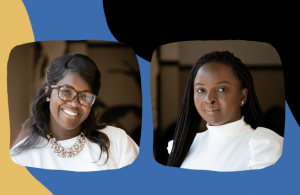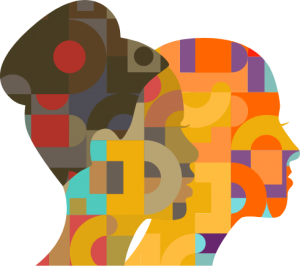BIPOC Mental Health Trends and Disparities
 Even though mental health experiences are unique to each person, there are a few trends within the BIPOC community that highlight similar disparities and barriers throughout each ethnic group. Read more ›
Even though mental health experiences are unique to each person, there are a few trends within the BIPOC community that highlight similar disparities and barriers throughout each ethnic group. Read more ›
 Even though mental health experiences are unique to each person, there are a few trends within the BIPOC community that highlight similar disparities and barriers throughout each ethnic group. Read more ›
Even though mental health experiences are unique to each person, there are a few trends within the BIPOC community that highlight similar disparities and barriers throughout each ethnic group. Read more ›
 From inadequate educational experiences to constant, harmful disciplinary practices, school is a harmful place for many Black girls with disabilities. The National Center for Learning Disabilities (NCLD) in conjunction with The Education Trust interviewed two Young Adult Leadership Council (YALC) members about their experiences in school as Black girls with learning disabilities. Read more ›
From inadequate educational experiences to constant, harmful disciplinary practices, school is a harmful place for many Black girls with disabilities. The National Center for Learning Disabilities (NCLD) in conjunction with The Education Trust interviewed two Young Adult Leadership Council (YALC) members about their experiences in school as Black girls with learning disabilities. Read more ›
 For many students with differing abilities, assistive technology provides a bridge to overcome barriers to participation and progress in school. Read more ›
For many students with differing abilities, assistive technology provides a bridge to overcome barriers to participation and progress in school. Read more ›
 Every job seeker with a disability is faced with the same decision: “Should I or shouldn’t I disclose my disability?” This decision may be framed differently depending upon whether you have a visible disability or a non-visible disability. Ultimately, the decision of whether to disclose is entirely up to you. Read more ›
Every job seeker with a disability is faced with the same decision: “Should I or shouldn’t I disclose my disability?” This decision may be framed differently depending upon whether you have a visible disability or a non-visible disability. Ultimately, the decision of whether to disclose is entirely up to you. Read more ›
 Deciding if, when, and how to share disability-related information with a prospective or current employer can be overwhelming. The decision-making process requires answering a number of personal questions that may be different with each employment experience. Read more ›
Deciding if, when, and how to share disability-related information with a prospective or current employer can be overwhelming. The decision-making process requires answering a number of personal questions that may be different with each employment experience. Read more ›
 Serving customers across the United States and around the world for more than 35 years, the Job Accommodation Network (JAN) is the leading source of free, expert, and confidential guidance on job accommodations and disability employment issues. Read more ›
Serving customers across the United States and around the world for more than 35 years, the Job Accommodation Network (JAN) is the leading source of free, expert, and confidential guidance on job accommodations and disability employment issues. Read more ›
 More and more high school students with disabilities are planning to continue their education in postsecondary schools, including vocational and career schools, two- and four- year colleges, and universities.
More and more high school students with disabilities are planning to continue their education in postsecondary schools, including vocational and career schools, two- and four- year colleges, and universities.
As a student with a disability, you need to be well informed about your rights and responsibilities as well as the responsibilities postsecondary schools have toward you. Read more ›
 In a first-of-its-kind national survey that focuses on the mental health of Youth of Color, the AAKOMA Project‘s State of Mental Health for Youth of Color (SOMHYOC) surveyed almost 3,000 young people of color ages 13 to 25 to study their current state of mental health. Read more ›
In a first-of-its-kind national survey that focuses on the mental health of Youth of Color, the AAKOMA Project‘s State of Mental Health for Youth of Color (SOMHYOC) surveyed almost 3,000 young people of color ages 13 to 25 to study their current state of mental health. Read more ›
 Children are curious and often have questions when they encounter people that are different from them, whether it be race, age, ability, religion, disability, gender, sexual orientation or appearance, just to name a few. But while their questions can be embarrassing at times, it’s important to answer those questions and talk about their curiosity.
Children are curious and often have questions when they encounter people that are different from them, whether it be race, age, ability, religion, disability, gender, sexual orientation or appearance, just to name a few. But while their questions can be embarrassing at times, it’s important to answer those questions and talk about their curiosity.
Here are five ways you can start these difficult conversations and teach kids to accept others and celebrate their differences. Read more ›
 Contrary to the common belief that young children “don’t see race,” a mountain of research evidence confirms that racial awareness starts early. We know that within a few months of birth, babies prefer own-race faces, and that by roughly age 3 kids start to form judgments about others based on racial differences. And by kindergarten, kids perceive that different racial groups have different social status. Read more ›
Contrary to the common belief that young children “don’t see race,” a mountain of research evidence confirms that racial awareness starts early. We know that within a few months of birth, babies prefer own-race faces, and that by roughly age 3 kids start to form judgments about others based on racial differences. And by kindergarten, kids perceive that different racial groups have different social status. Read more ›